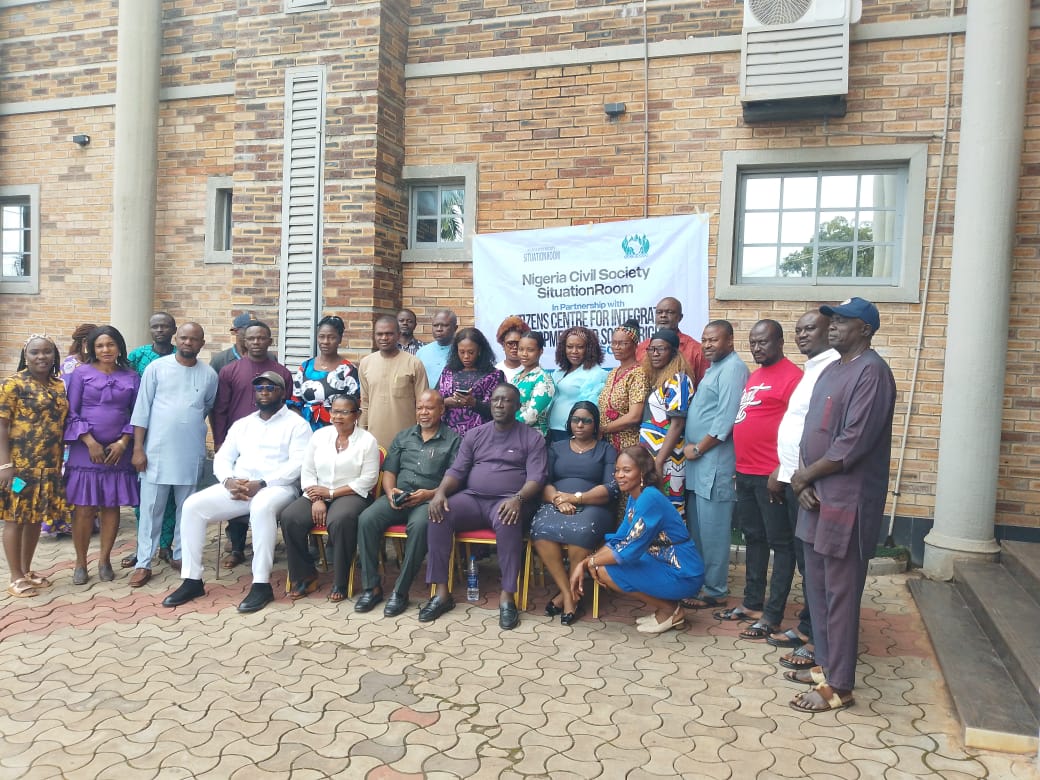By; KELVIN OKPARA, Enugu A former Resident Electoral Commissioner (REC) in Enugu State, and Executive Director, of a Civil Society gr
By; KELVIN OKPARA, Enugu
A former Resident Electoral Commissioner (REC) in Enugu State, and Executive Director, of a Civil Society group, Citizens Centre for Integrated Development and Social Rights (CCIDESOR), Dr. Emeka Ononamadu, has identified absence of transparent procurement system, open budgeting, and accountability framework as some of the key factors responsible for the weak and under performance of local government in Nigeria.
He stressed that the essence of creating that tier of government which is primarily to drive grassroots development, service delivery, and economic participation has not been realized in the country since inception.
“Restoring local government financial autonomy is therefore, not just a governance reform agenda, but a prerequisite for strengthening democracy and rebuilding the Nigerian economy from the bottom up.
“However, years of emasculation by state governments, coupled with the absence of transparent procurement system, open budgeting and accountability framework have left local government weak, underperforming, and disconnected from their constitutional mandate”
Dr. Ononamadu, spoke last Tuesday, during a one day Economic Literacy and Budget Accountability Training, organized by Nigeria Civil Society Situation Room in partnership with Citizens Centre for Integrated Development and Social Rights CCIDESOR, for selected LGAs officials and CSOs in Enugu state.
He noted that most local government employees in the country are not abreast with the budgetary processes in the system, hence the need for such training with a view to Equipping them with the necessary knowledge.
The CCIDESOR boss, also emphasized that though, reforms in any system are vital, but for it to be effective in the local government system, both officials of the LGAs and CSOs must be equipped with economic literacy and budget accountability literacy training.
He disclosed that the project being supported by the United Kingdom FCDO under it’s international Development programme is being carried out in 17 states of Nigeria, among them, Imo, Abia, Anambra and Ebonyi.
The Executive Director, further averred that the primary objective of such training includes to equip the stakeholders with the needed knowledge and skills, to understand the economic significance of LGAs, their business budget processes, and how fiscal discipline and accountability impact service delivery and local development.
Other objectives he listed are, building the capacity of CSOs and citizens to track, interrogate and engage constructively with LGAs budgets, projects, and spending priorities, so as to ensure that governance in the system is transparent, and responsive. Promote informed advocacy, amongst others.
According to him, local government budget remains the single most important instrument for governance at the grassroot level, as it translates policies into programmes, allocates scarce resources, and serves as the framework for accountability between leaders and citizens.
“Understanding the budget cycle and it’s principle is therefore, fundamental for strengthening democracy, promoting financial autonomy, and driving local economic development in Nigeria” Ononamadu stated.
The training with the Theme: ‘Reviving Local government Governance: Citizens-Led Advocacy for LGA Budget, Accountability and Reform in South East Nigeria’, was attended by workers of Nsukka, Awgu and Enugu East Council areas of Enugu state.
“The importance of this training goes beyond skills acquisition, it represents a strategic investment in building a sustainable democratic culture.
” Without adequate economic and budget literacy, even when financial autonomy is granted, LGAs may replicate the same patterns of fiscal recklessness and elite capture that have plagued other tiers of government.
“The training therefore, acts as a safeguard, preparing local government areas and citizens to manage autonomy with accountability”
“For the CSOs, such training enhances their watchdog role, positioning them as credible partners in monitoring, advocacy and policy dialogue” adding that the synergy would create the multiplier effect needed for bottom -up economic growth, where transparent and accountable LGAs stimulates local economies, reduce poverty, and build citizen trust in governance.
In a remark, president of NULGE in Enugu East Council area, Mr. Udoagha Ani, applauded organizers of the training, saying it would help in building their capacity for optimal performance.
Leader of the Nigeria Civil Society Situation Room Dr. Y.Z Ya’u, sent in goodwill Massage that was read by Dr. Ononamadu during the programme.
Our correspondent reports that the Nigeria Civil Society Situation Room is a coalition of over 70 civil society organizations dedicated to monitoring Nigeria’s electoral process and elections across the nation.




COMMENTS